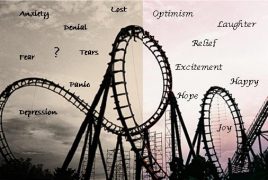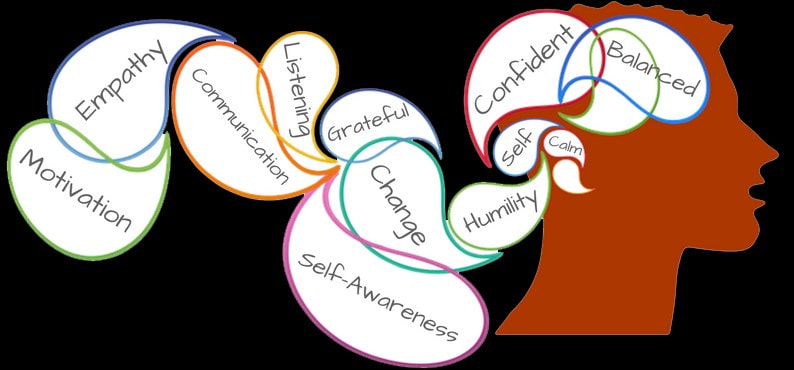Anxiety - Luke 22:44/Afraid -Hebrews 5:7/Pressured-Luke 12:50/Troubled- John 11: 33; 12:27/Terrified- Mark 14:33
Anger -Mark 3:5/Boiling Passion-John 2:17/Indignant-Mark 10:14/Furious-Revelations 19:15
Shame -Hebrews 12:1/Depression-Mark 14:33 Forsaken Mark 15:34
Sadness - Luke 19:41/Grief-Mark 3:5/Tearful-John 11:35, 43
Pain - Mark 15:15/Suffering-Luke24:26/Weary-John 4:6
Surprise-Amazed-Luke 7:9/Astonished-Mark 14:33
Hope - 1 Corinthians 13:7/Colossians 1:5
Faith - Galatians 2:21, John 15:12
Love - Mark 10:21, John 11:5/Friendship love-John 11:3; 20:2 Compassion-Matthew 9:36; 14:14 Sympathy-Hebrews 4:15
Joy - Luke 10:21/Rejoicing-John 11:15/Glad-John 15:11 Thankful-Matthew 11:25
Peace - John 14:27/Rest-Matthew 11:28/Refreshment-Mark 6:31
As leaders, we experience the full array of human emotions on a regular basis; I just say this last couple of weeks, all my emotions work just fine. How we handle our emotions can make or break our leadership.
Jesus himself experienced the full range of emotions such as; love, anger, compassion, loneliness, frustration, and joy. The powerful thing about Jesus and the expression of His emotion is that it always seemed to be perfectly appropriate and perfectly timed. But let’s be honest, we’re not Jesus. We are to live like Him, but we’ll never be Him. So, what can we do?
1) Own your emotions.
Don’t blame your emotions on your circumstances or other people. For example, we often think that a particular person made us angry. It’s true that someone can push your buttons, provoke you and cause a certain emotion like anger begin to rise up in you; but you choose how you will respond. If it was true that someone could actually “make” you angry, that would mean they control you. The same is true with gratitude, happiness, and contentment, as examples. No one can make you feel grateful, happy, or content. These are emotions that you choose. If other people were responsible for your happiness, you could only experience as much happiness as they could or would give you. Ruth did not become bitter like Naomi no, she brought joy back to Naomi…the pleasantness for which she was named.
2) Lead your emotions.
Either you lead your emotions, or they lead you. It’s not always easy, but vitally important for a leader. When you are under pressure, stressed, tired, or feeling overwhelmed, that’s when leading your emotions is most important. To lead your emotions is to be present with your feelings. This enables you to guide them and shape them rather than being owned or controlled by them. Let’s take positive emotions as an example. Your work as a spiritual leader is serious work. It involves people, problems and even spiritual warfare. Over time this process will drain you. Therefore, it’s vital that you purposely cultivate positive emotions such as joy, gratitude, love, compassion, and contentment. You can choose to laugh, play, serve, and give. You can choose staff, friends, and even service providers that you enjoy being around. You can take charge and lead your emotions, rather than be governed by them.
3) Mature your emotions.
Maturing your emotions is the goal of owning and leading your emotions. No one wants to live like a robot or expects perfectly “contained” emotions. Your emotions are an expression of life and make you an interesting person. At the same time, people can’t trust a leader whose emotions are unpredictable, or may erupt at any moment. Remaining poised when the heat is on is an indication of maturity with your emotions.
Emotional maturity is required to be freed up and real, and at the same time self-controlled and even tempered. Prayer, wise counsel, and intentional effort, combined with selfless living, are key components that help your emotions mature.


 RSS Feed
RSS Feed